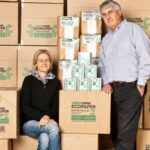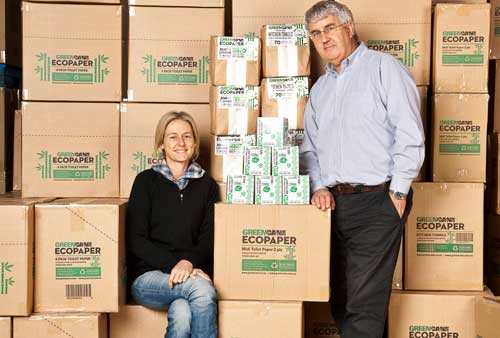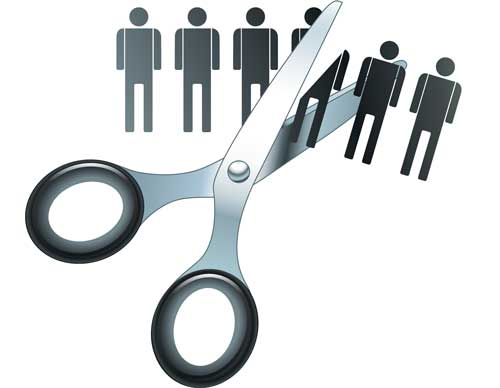Ready, willing and focused
Altus Enterprises is an Auckland-based outsourcing solutions centre that also operates as a social enterprise employing 250 disabled people.
Altus Enterprises is an Auckland-based outsourcing solutions centre that also operates as a social enterprise employing 250 disabled people. As Glenn Baker discovered, when it comes to solving problems for businesses, this enterprise is ready, willing and able.
Need a packaging problem fixed? Require a supply chain solution? Temporary workers perhaps? Or a repetitive manual task carried out for a marketing initiative?
Look no further than Altus Enterprises – no job is too big or too small or too difficult, and if this reads like a commercial, I make no excuses. This is a message that needs to get out to the wider business community – about a resource that has largely been flying under the radar for much of its existence.
Altus Enterprises is one of two arms under the new Elevator Group brand – the other arm is the Elevator support and employment agency which places people with disabilities into open employment across all business sectors.
Based at Mangere since 1963, CEO Neil Porteous informs me that Altus Enterprises today is a far cry from its ‘sheltered workshop’ origins and operates as a fully commercial outsourcing partner, with more than 200 employees.
“We’re just like any other business, with all the required production and quality systems in place,” he says. “It’s just that we happen to employ a high percentage of people with disabilities.”
Its most high-profile client is Air New Zealand, for which it refurbishes the airline’s in-flight headsets; over 12,000 every day.
However, since the recession took hold, it has been a challenge finding work for this arm of the business. “It’s got harder because businesses are less busy and therefore tend to use their own staff for projects that traditionally we would have handled,” explains Altus Enterprises manager Paul Stoneman. “Our success is linked to the general business environment. If businesses are busy, then so are we.
“Times are tough so it’s time to get the message out there that this is a competitive, high-quality outsourcing operation that should be part of any company’s strategy for growth.”
Recessionary times are perfect for businesses to be engaging a partner such as Altus, explains sales and marketing manager Jason Catterall. “It’s tough out there. Companies need to concentrate all of their efforts on bringing in new business, instead of trying to do everything themselves. We provide a tailored, fixed cost solution that is highly competitive, often at lower cost than could be achieved in house. Smart business managers use outsourcing to allow them to get back to their core activity of actually growing their business.”
The centre’s services are also ideal for companies that have to deal with seasonal or fluctuating business demands, or those that want to test a new product and don’t want to invest in new machinery. Altus is equipped with a number of specialised machines to do tasks such as drop sealing, shrink packaging, blister and skin packing and gluing. Not everything is done by hand.
“Another typical service could involve unpacking a container for a client, labelling the product with a brand, creating the point-of-sale collateral, storing it and distributing it to retail outlets,” says Catterall. “So we can deliver a total low cost supply chain solution.”
Social responsibility
The current focus on corporate social responsibility (much of which is consumer driven), triple bottom line reporting and the desire by businesses to give back to their local communities is an additional reason to pick up the phone and engage Altus.
“If all other things are equal – if the price is right, if the turnaround is quick, if the quality is high and the client is being looked after – then we offer a truly unique service for the community,” says Catterall. “Organisations that work with us benefit positively, leveraging their support for the community not only drives customer engagement but also leads to increased profits.”
He says he’s keen to leverage off the greater need for businesses to have a social conscience. “Some of our biggest clients aren’t aware of everything we do. Some don’t even realise we’re a not-for-profit social enterprise.
“Brands are increasingly becoming consumer led. Statistics tell us that almost 20 percent of New Zealanders are living with some kind of disability, so if your brand speaks to that, then you’re going to get support from that part of the community.”
Engaging Altus is not only a competitively-priced alternative to hiring temporary staff, it’s also far less hassle. “The problem with hiring temps,” says Stoneman, “is that first you have to find them, then you have to manage them.”
“Altus specialises in ‘per-piece rates’,” adds Catterall. “It will be a fixed-price contract so you know what you’re paying up front. We’ve been doing this for 50 years, so you know you’ll get a fast turnaround and a good result.”
Solution focused
There’s a strong sense of Kiwi ‘can-do’ about Altus – and that’s reflected in the wide variety of projects they take on. Stoneman says they specialise in remedial work. It may involve poor or incorrect labelling, sometimes involving imported product – such as the 6000 cans of mackerel that required revised labelling. They can also set up and manage bespoke business units, producing everything from spouting for the building trade, to contract assembly of BBQs and compost bins.
SMEs are a primary target for new business, particularly start-ups because, as Neil Porteous explains, his organisation has so much to offer. “If we get in at the early stage we can help a start-up to develop a new product, or a new market. We’ve got the space, the manpower, the skills and the infrastructure to provide our customers a real competitive edge. There’s even access to capital for the right business cases. Food for thought if you’re looking to gain market share while everyone else sits back waiting for the recession to ease.
“We achieve all this whilst providing employment opportunities for people with disabilities – and the greater scope we can have to do that, the better for us.”
SMEs are also the businesses that employ the greatest number of people with disabilities through the Elevator support and employment agency, says Porteous. He knows of one business that has eight employees with disabilities out of a total workforce of 30. “These businesses absolutely see the benefit of employing people with disabilities – they work harder, they stay longer, they’re totally committed to the job.”
I get a sense of this total commitment a little later when Paul Stoneman takes me on a tour of the Kirkbride Road facility. It’s a happy, fun and highly productive work culture that would be the envy of many businesses.


![Ready, willing and focused Smartphone-connectivity-best-concept-[Converted]](https://nzbusiness.co.nz/wp-content/uploads/2016/06/Smartphone-connectivity-best-concept-Converted-150x150.jpg)


